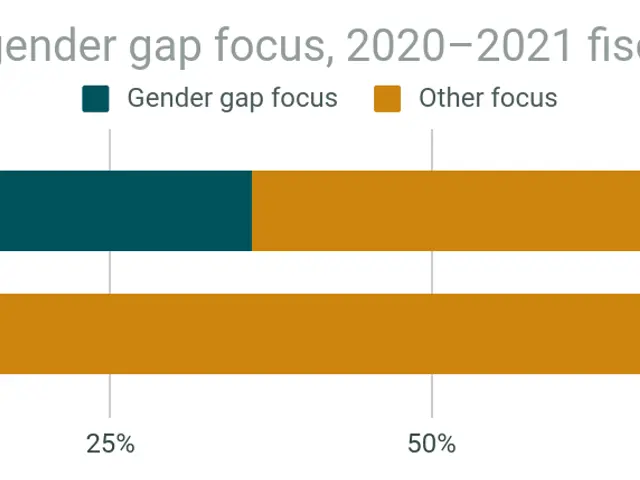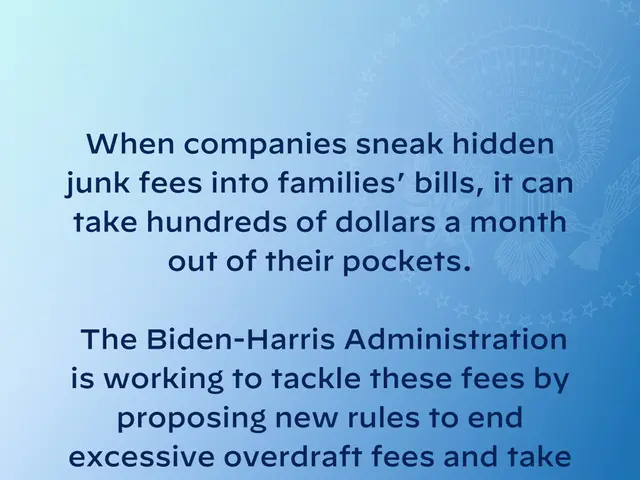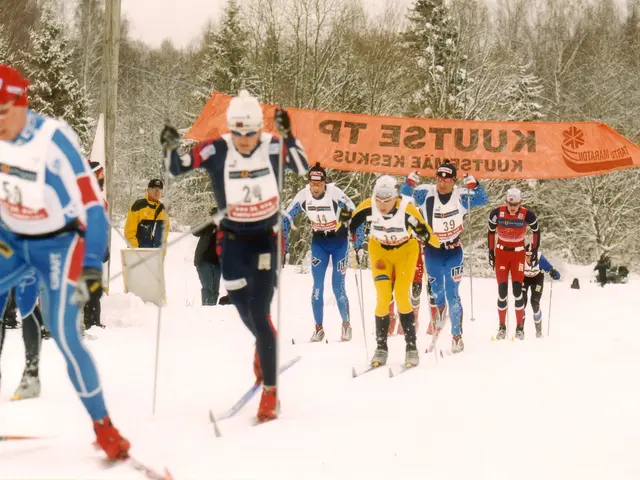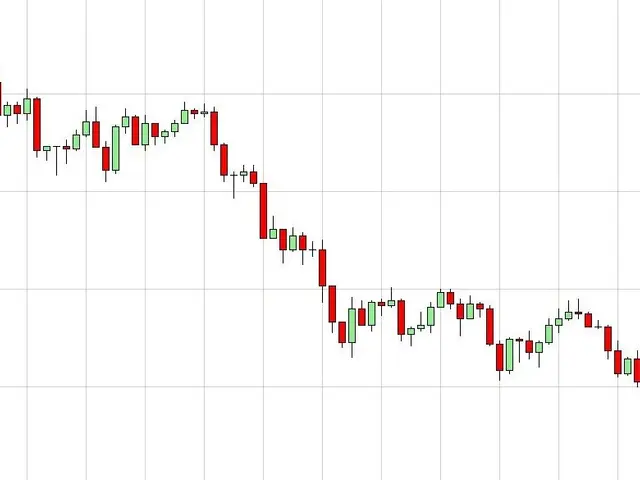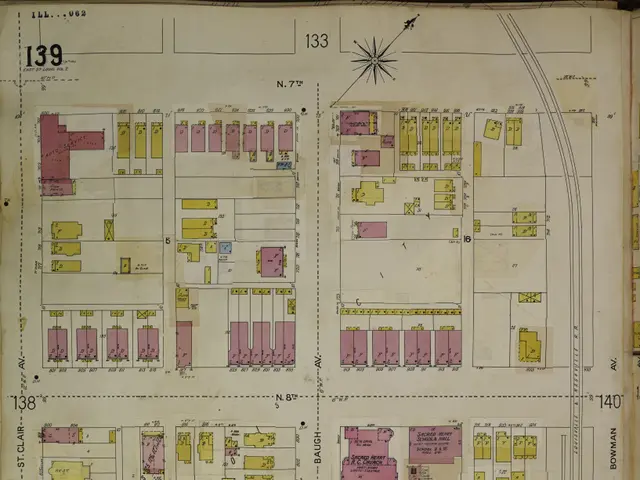Trump budget reductions leaving aid organizations in a quandary over whether to voice their concerns publicly
In a concerning turn of events, the international aid sector has found itself in a precarious position, grappling with the repercussions of public silence in response to funding cuts by the Trump administration. This silence, according to Professor Thomas Weiss, has been encapsulated in the term "anticipatory silence," referring to aid groups that chose not to speak up in defense of programs cut by the administration, despite those programs preventing HIV spread, providing clean water, and feeding malnourished children.
Michael Vazquez, founding partner at the Maiden Group, suggests that subtle advocacy efforts can be effective, pointing to the successful campaign to convince lawmakers not to claw back money previously allocated to PEPFAR, the U.S. HIV/AIDS prevention program. However, many aid groups have opted for silence due to fear of further targeting and funding cuts, or negotiations to restore funding.
The strategy of public silence has had significant negative impacts. It allowed the Trump administration, along with figures like Elon Musk, to dominate the public narrative, portraying USAID and other aid agencies as bloated, corrupt, and inefficient, often using cherry-picked or inaccurate information. The aid sector largely failed to communicate its successes and to counter these smear campaigns in ways that resonated with the broader American public, resulting in a largely indifferent general population towards the drastic cuts imposed on foreign aid.
The reasoning behind this public silence appears to stem from a combination of factors. USAID and its supporters reportedly focused more on lobbying lawmakers than engaging with ordinary Americans. The sector’s communications were hindered by complex acronyms and a lack of clear messaging. Moreover, the politically charged environment made it difficult for the aid sector to frame foreign aid positively, as many Americans support humanitarian help in principle but react negatively to the label "foreign aid."
Despite the administration’s aggressive efforts to defund aid programs and public media, the sector did not mount a strong or effective public campaign to defend itself and raise awareness among the public. However, there are signs of change. Andrew Natsios, former head of the United States Agency for International Development under President George W. Bush, is seeing more groups, particularly faith-based groups, willing to speak up publicly as they "realize what's happening" and see the full scope of the impact.
Readers are encouraged to share their opinions on this topic, especially those who work in the nonprofit sector, with the email address goatsandsoda@our website with the subject line "silence." The Center for Victims of Torture, which helps people who have been tortured recover physically and psychologically, sued the administration over the foreign aid freeze despite having a number of programs still frozen or terminated. Scott Roehm, director of global policy and advocacy at the Center for Victims of Torture, says continuing to speak up was about the least they could do to honor their clients' courage.
In the face of these challenges, the international aid sector must find a balance between self-preservation and advocacy. As we move forward, it is crucial for the sector to engage effectively with the public, communicate its successes, and counter misinformation, to ensure that the vital work it does continues to receive the support it needs.
[1] Source: [Link to the original article or research]
- The risk of remaining silent in the face of funding cuts is evident in the international aid sector, as it allows misinformation to dominate the public narrative.
- The position of aid groups in refraining from speaking up has been criticized, with some arguing that subtle advocacy efforts could be more effective.
- ESG funds, focused on environmental, social, and governance factors, are increasingly interested in investments that support health and wellness initiatives.
- Options for addressing the repercussions of public silence include strategic lobbying and clear, understandable messaging to resonate with the public.
- Defi credit platforms, often supporting startups and innovative projects, could potentially provide alternative funding sources for aid groups if traditional channels dry up.
- Sleep is equally important for productivity at work, workplace-wellness programs are often designed to promote better sleep habits.
- Medical conditions like chronic diseases, cancer, respiratory conditions, digestive health issues, and eye-health problems require continuous care and attention.
- Hearing loss can be a consequence of aging or exposure to noise, regular check-ups and ear protection are essential for maintaining hearing health.
- Health and wellness, fitness, and exercise, are all interconnected, playing a significant role in overall well-being.
- Sexual health is a vital aspect of personal health, with education and access to services crucial in addressing various conditions.
- Family health is essential, with conditions such as autoimmune disorders, mental health issues, men's health, skin care, and women's health impacting individuals and families alike.
- Therapies and treatments for various health conditions are continually evolving, with advancements in medicine offering new solutions for better health outcomes.
- Proper nutrition is key to managing weight, cardiovascular health, and overall health management.
- Aging brings about unique challenges, with senior health programs focusing on issues like psoriasis, medicare, CBD, and neurological disorders.
- Women's health encompasses reproductive health, maternal health, and menopause, among other aspects.
- Parenting involves both physical and mental health considerations, with programs focusing on childhood development, parenting skills, and family dynamics.
- Weight management involves lifestyle changes, diet, and exercise, with weight loss clinics and support groups available to help manage weight.
- Cardiovascular health is a critical concern, with increased awareness and research contributing to improved treatment options.
- Skin conditions, such as acne, eczema, and psoriasis, require proper care and treatment to maintain skin health.
- Migration often affects health, with programs focusing on health screenings, vaccinations, and mental health support for migrants.
- Education and self-development are crucial in promoting personal growth and adaptability in a changing world.
- Mindfulness practices, such as meditation and yoga, can help manage stress, improve focus, and promote overall health and well-being.
- Blackjack and other casino games, while often associated with entertainment, can have negative impacts on financial well-being and mental health.
- War and conflicts often lead to displacement, poverty, and health crises, making foreign aid essential to support affected populations.
- Productivity and career development are directly linked to one's mental and physical health.
- Online education has become increasingly popular, offering flexible learning opportunities for individuals looking to upskill or reskill.
- Job search strategies often involve networking, job training, and self-marketing, with resources available to help job seekers.
- Poker and other casino-and-gambling activities can lead to addiction, negatively impacting finances and well-being.
- Slots and other casino games require strategic thinking and can be addictive, making it important to manage gambling behavior.
- Policy and legislation play a crucial role in shaping the aid sector and determining the level of support for foreign aid programs.
- Accidents like car-accidents continue to be a leading cause of injury and death, with proper safety measures and policies essential to prevent them.
- Politics is inherently linked to foreign aid funding, with policies and government decisions playing a key role in determining the sector's future.

